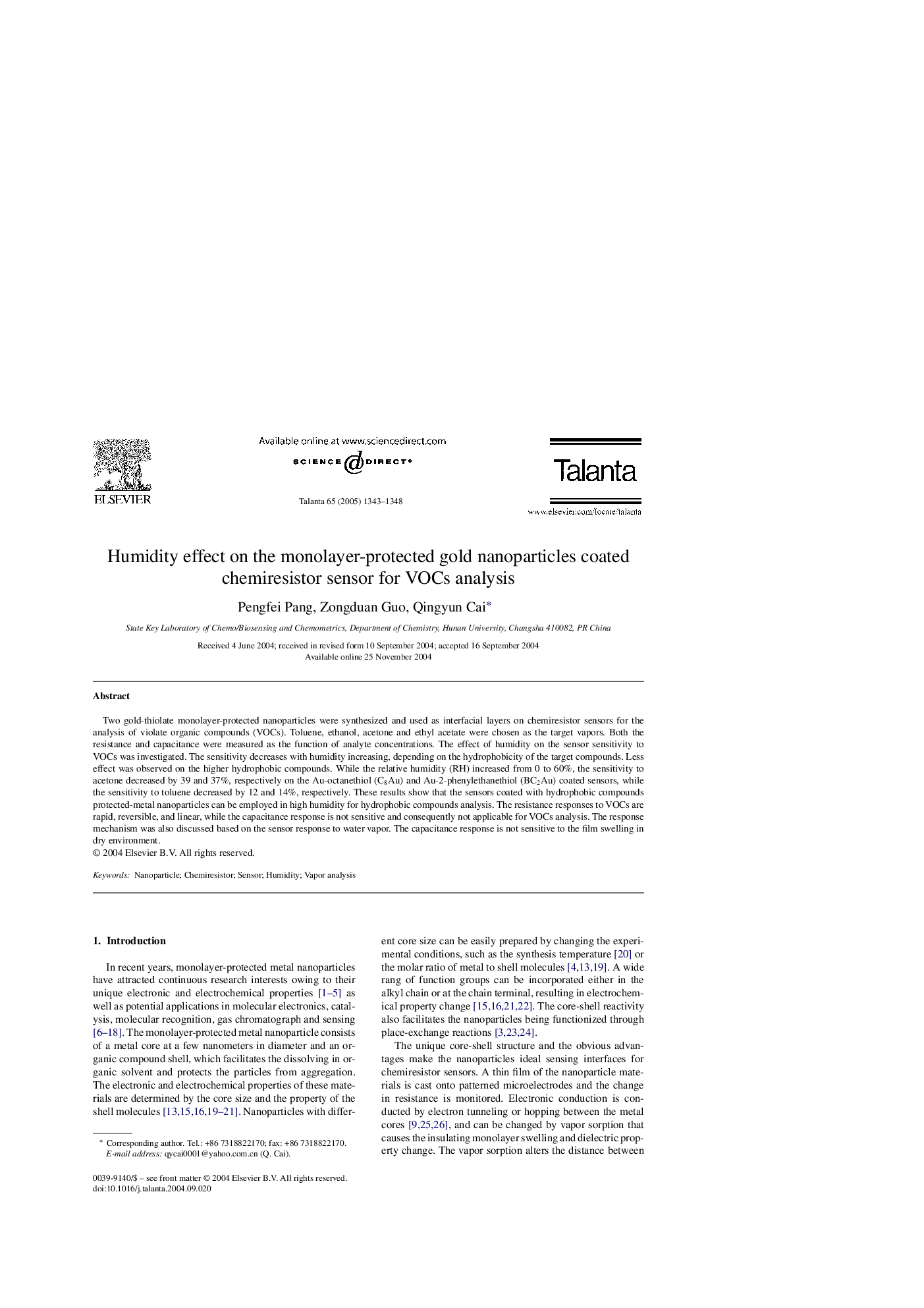| Article ID | Journal | Published Year | Pages | File Type |
|---|---|---|---|---|
| 10560952 | Talanta | 2005 | 6 Pages |
Abstract
Two gold-thiolate monolayer-protected nanoparticles were synthesized and used as interfacial layers on chemiresistor sensors for the analysis of violate organic compounds (VOCs). Toluene, ethanol, acetone and ethyl acetate were chosen as the target vapors. Both the resistance and capacitance were measured as the function of analyte concentrations. The effect of humidity on the sensor sensitivity to VOCs was investigated. The sensitivity decreases with humidity increasing, depending on the hydrophobicity of the target compounds. Less effect was observed on the higher hydrophobic compounds. While the relative humidity (RH) increased from 0 to 60%, the sensitivity to acetone decreased by 39 and 37%, respectively on the Au-octanethiol (C8Au) and Au-2-phenylethanethiol (BC2Au) coated sensors, while the sensitivity to toluene decreased by 12 and 14%, respectively. These results show that the sensors coated with hydrophobic compounds protected-metal nanoparticles can be employed in high humidity for hydrophobic compounds analysis. The resistance responses to VOCs are rapid, reversible, and linear, while the capacitance response is not sensitive and consequently not applicable for VOCs analysis. The response mechanism was also discussed based on the sensor response to water vapor. The capacitance response is not sensitive to the film swelling in dry environment.
Related Topics
Physical Sciences and Engineering
Chemistry
Analytical Chemistry
Authors
Pengfei Pang, Zongduan Guo, Qingyun Cai,
